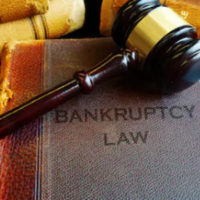Is Chapter 11 Bankruptcy Right for Your Business?

Sometimes a business, corporation or partnership can find itself in a financial position with so much debt that can only be solved by filing for Chapter 11 bankruptcy. In these cases, the business just needs to reorganize its debt to help it survive rather than starting fresh like they would by filing for Chapter 7. Individuals may also file for Chapter 11 bankruptcy, but most choose not to unless they do not qualify for Chapter 13. Reaching out to an experienced West Palm Beach Chapter 11 bankruptcy attorney is a great way to understand what sets Chapter 11 bankruptcy apart and how it can help the right candidate.
What is Chapter 11 bankruptcy?
When a business files for bankruptcy, it is telling a court that it cannot remain in good standing with its current debts. By filing for Chapter 11 bankruptcy in Florida, a business can pay back most of its debts in an organized way while keeping creditors from harassing them.
The process of filing for Chapter 11 bankruptcy is long and thorough. A business must reveal all of their information – financial and otherwise – in order to reorganize and pay back its debt appropriately. Chapter 11 bankruptcy has no income or debt limits, which can make it highly complex. Any business, from a sole proprietorship to a national organization, can file for Chapter 11 bankruptcy.
Becoming a debtor-in-possession
When a business files the official Chapter 11 petition in Florida, it then becomes what is known as a debtor-in-possession. This means that the business gets to retain its property and is given the same rights as a bankruptcy trustee, with the exception of the right to compensation.
As debtor-in-possession, one has the right to accept or reject contracts, file suits to keep creditors from receiving transfers, and more, but each of these must be court-approved. If the court feels the debtor-in-possession is unfit, it can appoint a trustee to replace them.
The Chapter 11 process
As stated before, the process for filing for Chapter 11 bankruptcy in Florida is very complex, but it boils down to three major steps.
First there is the disclosure statement. A debtor must draft a disclosure statement, which outlines the structure of the debtor and how the business is run overall. This document helps creditors decide if reorganization is a possibility, so it has to contain enough information to make that decision. If a decision can be made, the statement is approved and the debtor can proceed to the next step. If rejected, the debtor must make the necessary changes and resubmit the documents to the creditors.
After the disclosure statement is approved, the debtor must come up with a plan of reorganization. When this plan is submitted, the creditors are separated into classes and must vote to approve the plan, which means they must agree to receiving less than what they’re owed from the debtor.
Once a plan is approved by the court, a plan agent is assigned to it. The agent’s main job is to ensure creditors receive payments on time and that the debtor doesn’t default on the plan. Once the majority of the payments are made to creditors, the debtor will receive an official discharge of debts.
Finding the right representation
Because the process of filing for Chapter 11 bankruptcy is so complex, it’s ideal for a debtor to seek legal counsel from an experienced bankruptcy attorney that can help navigate the system and make the whole process easier for the business. The attorneys at Kelley Kaplan & Eller are eager to assist you today.
Resource:
uscourts.gov/services-forms/bankruptcy/bankruptcy-basics/chapter-11-bankruptcy-basics



